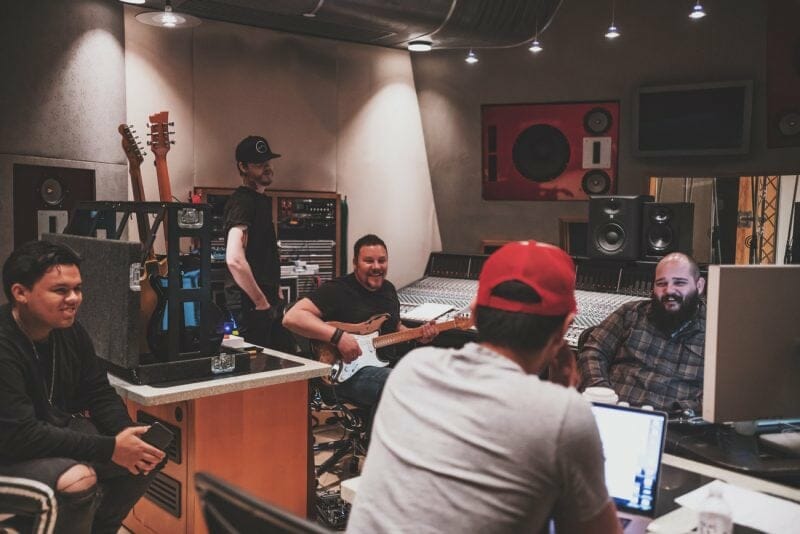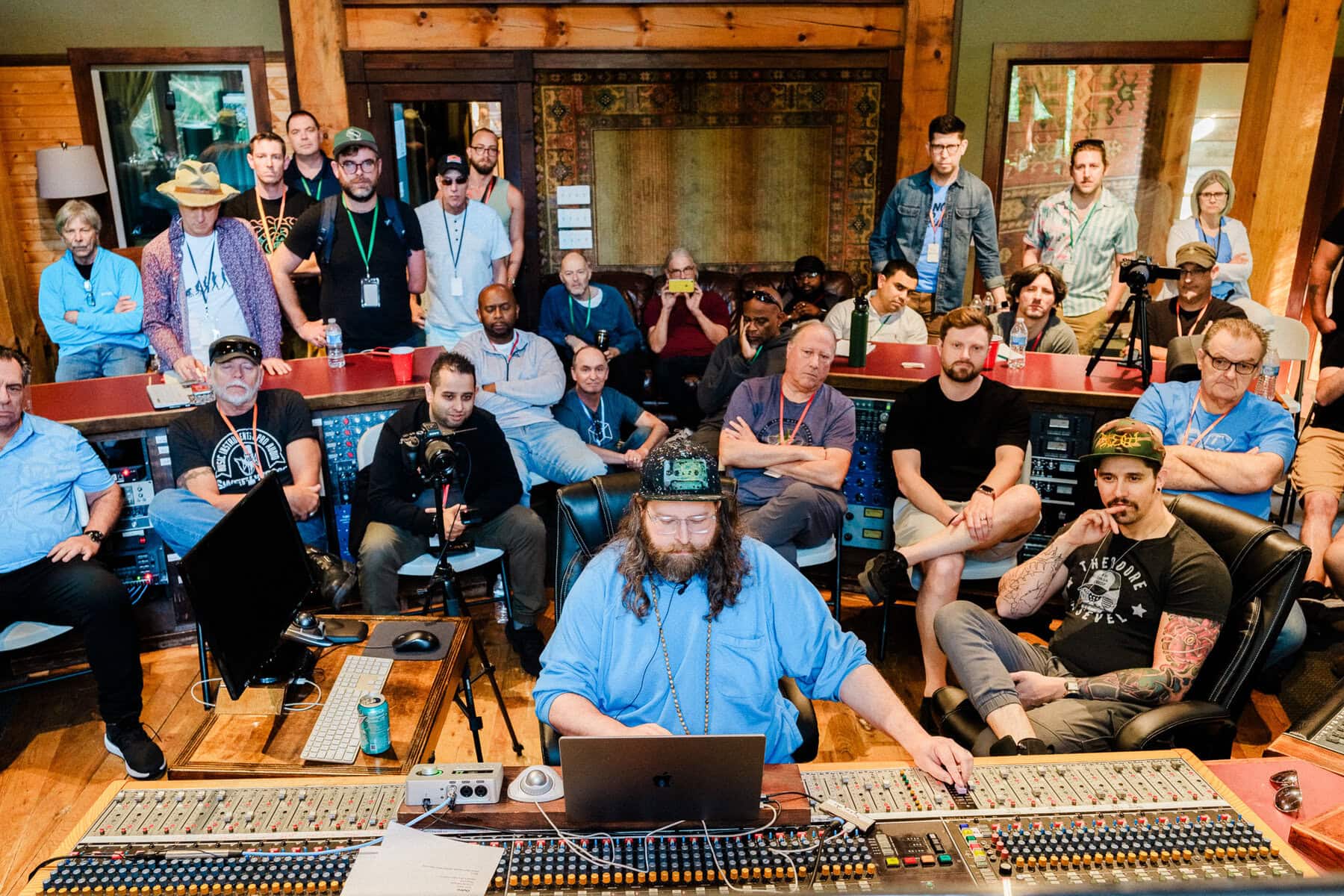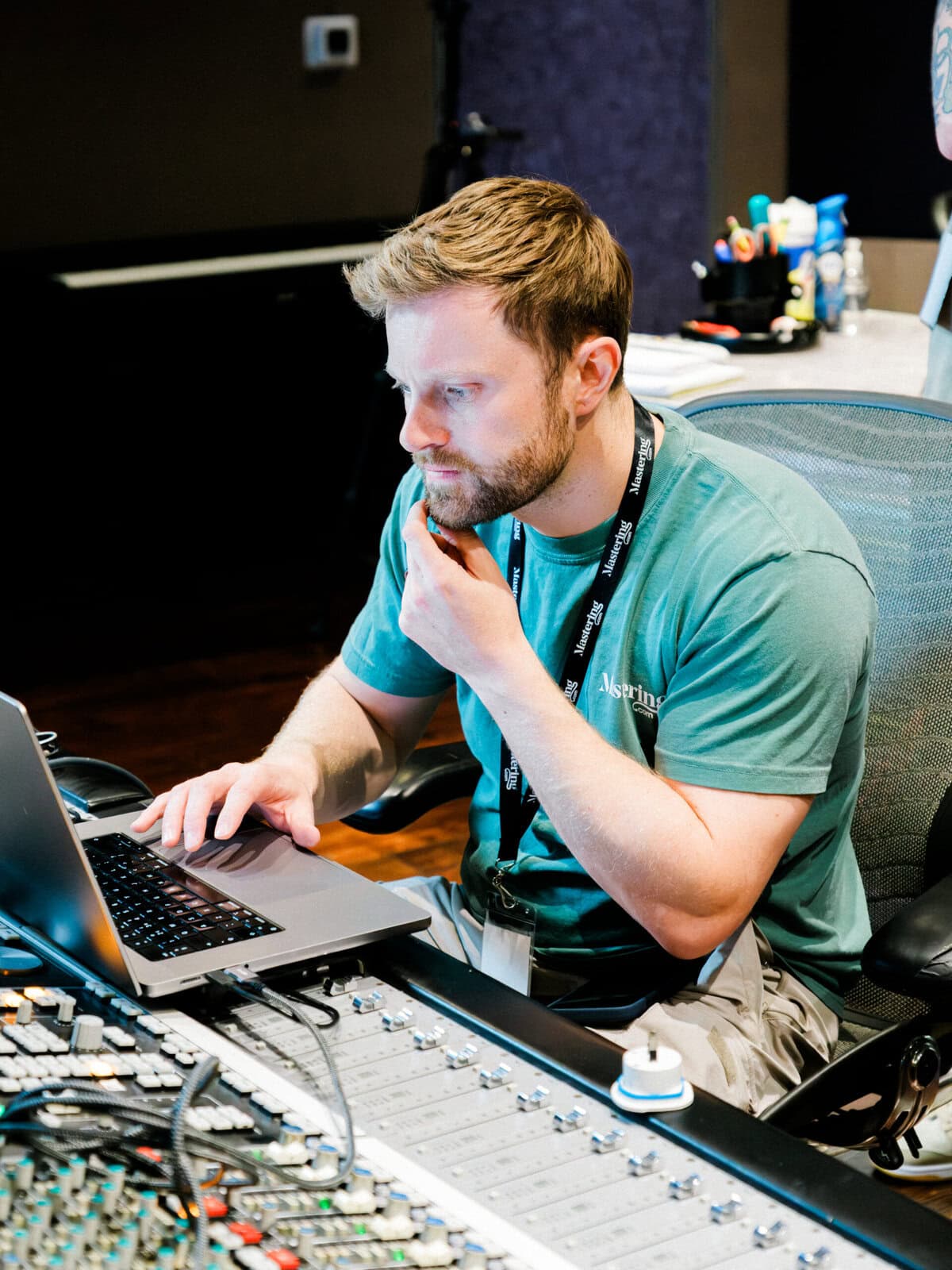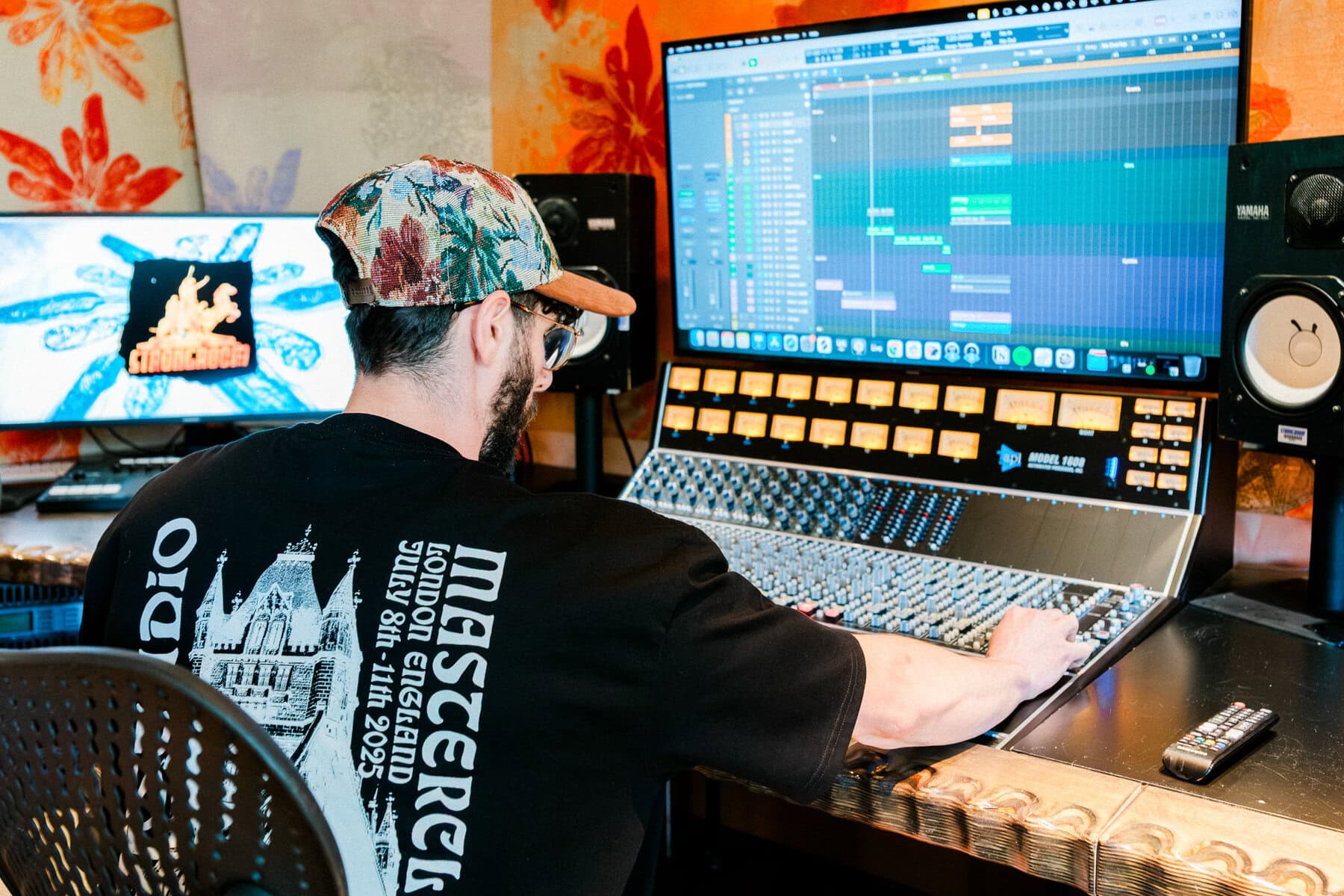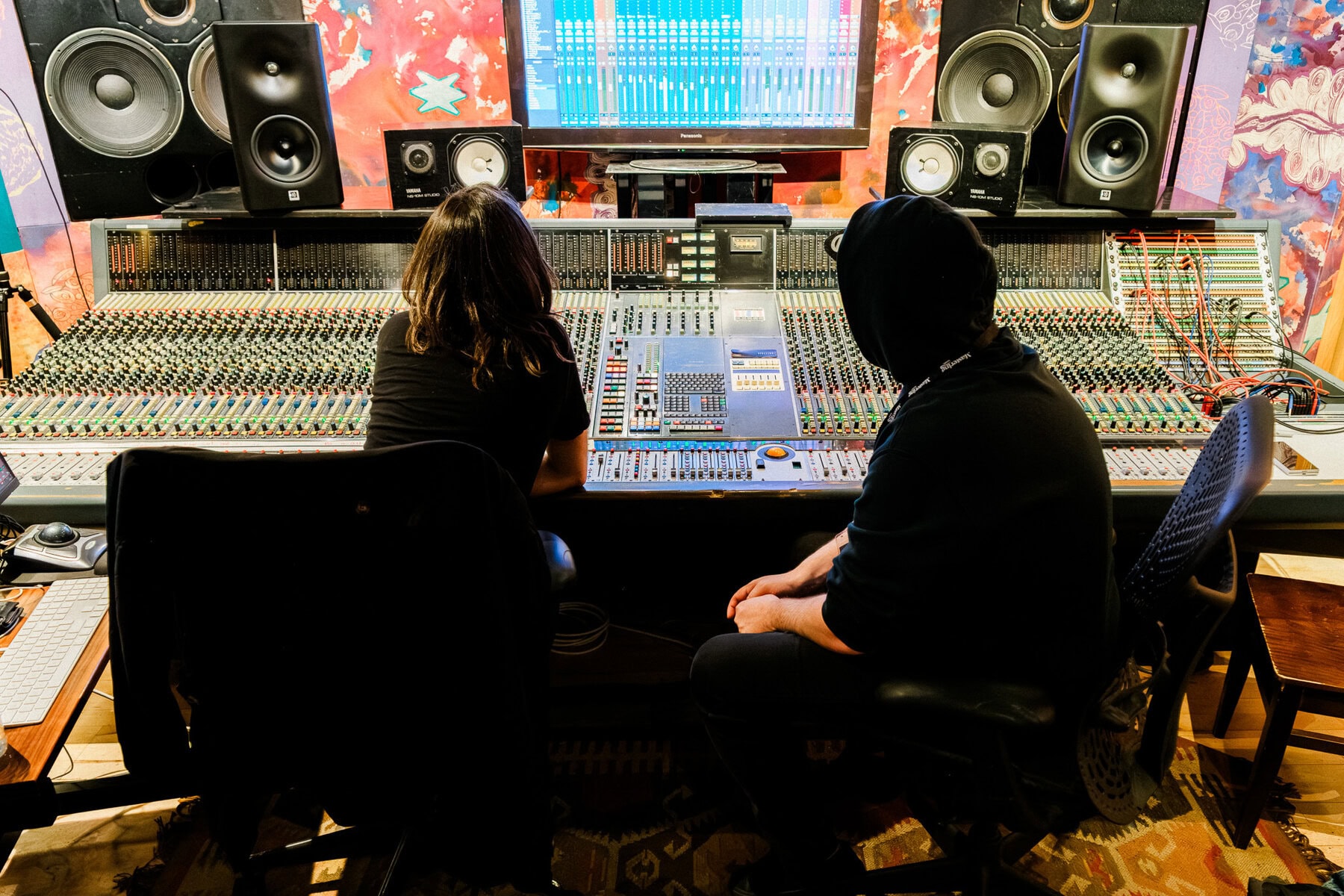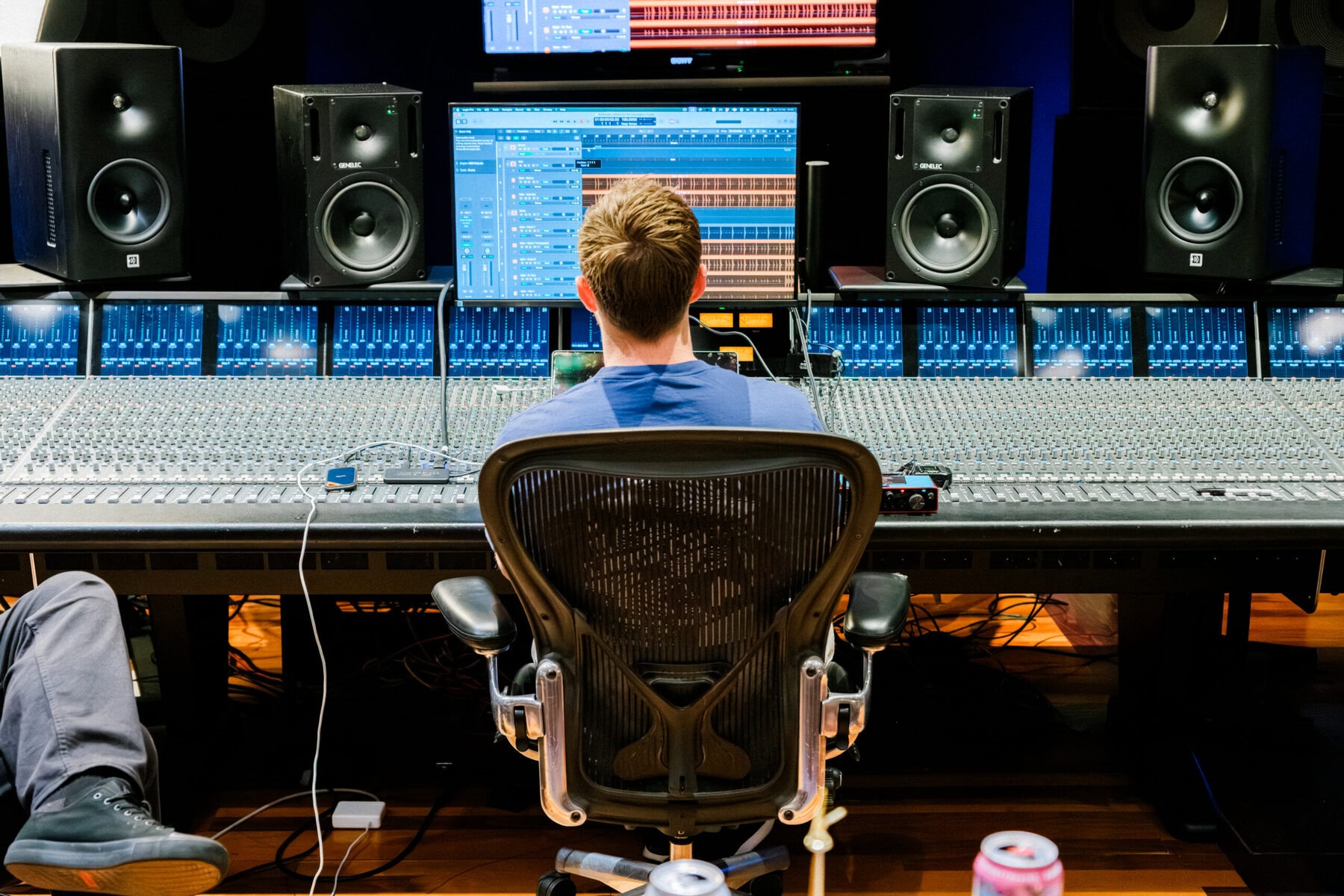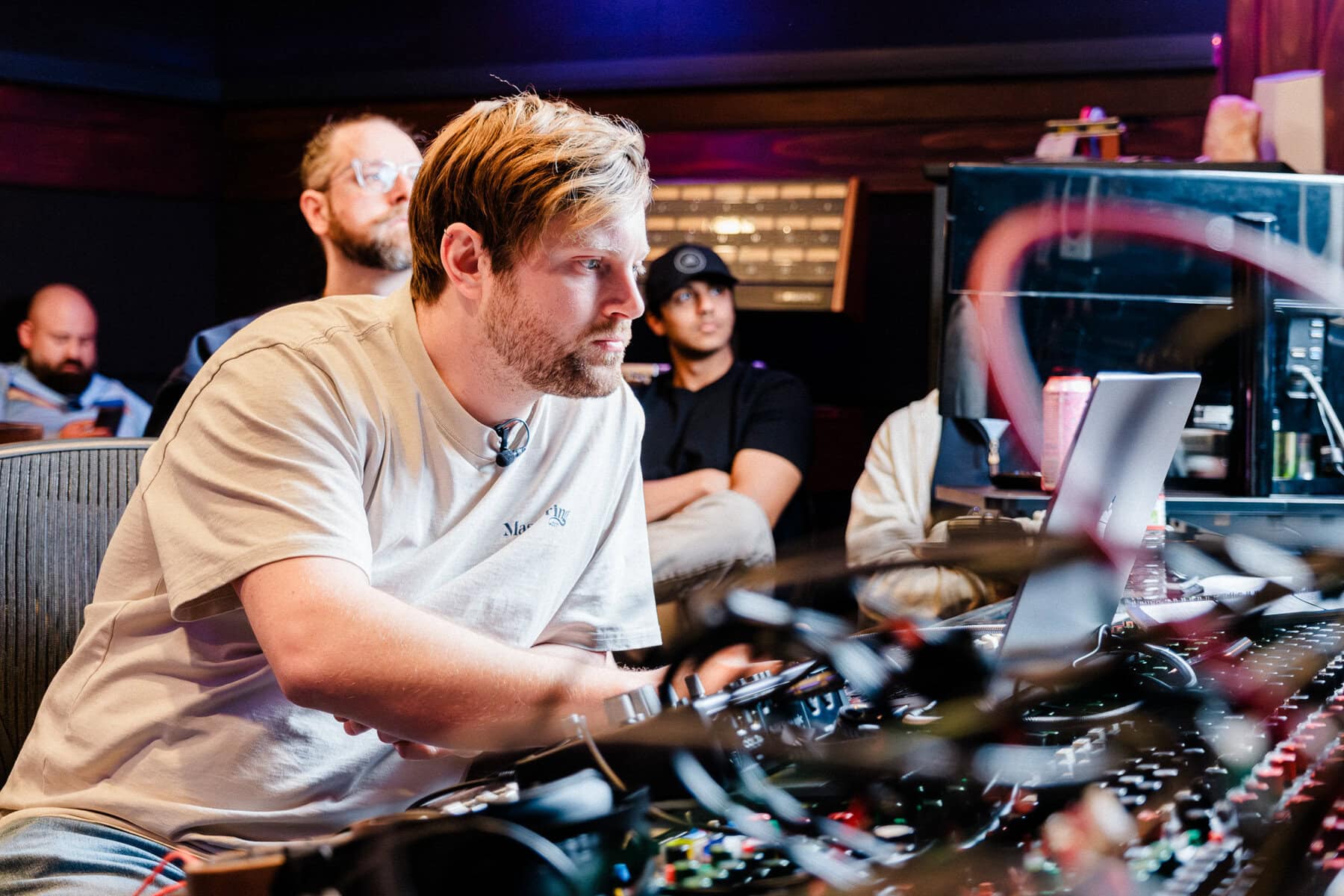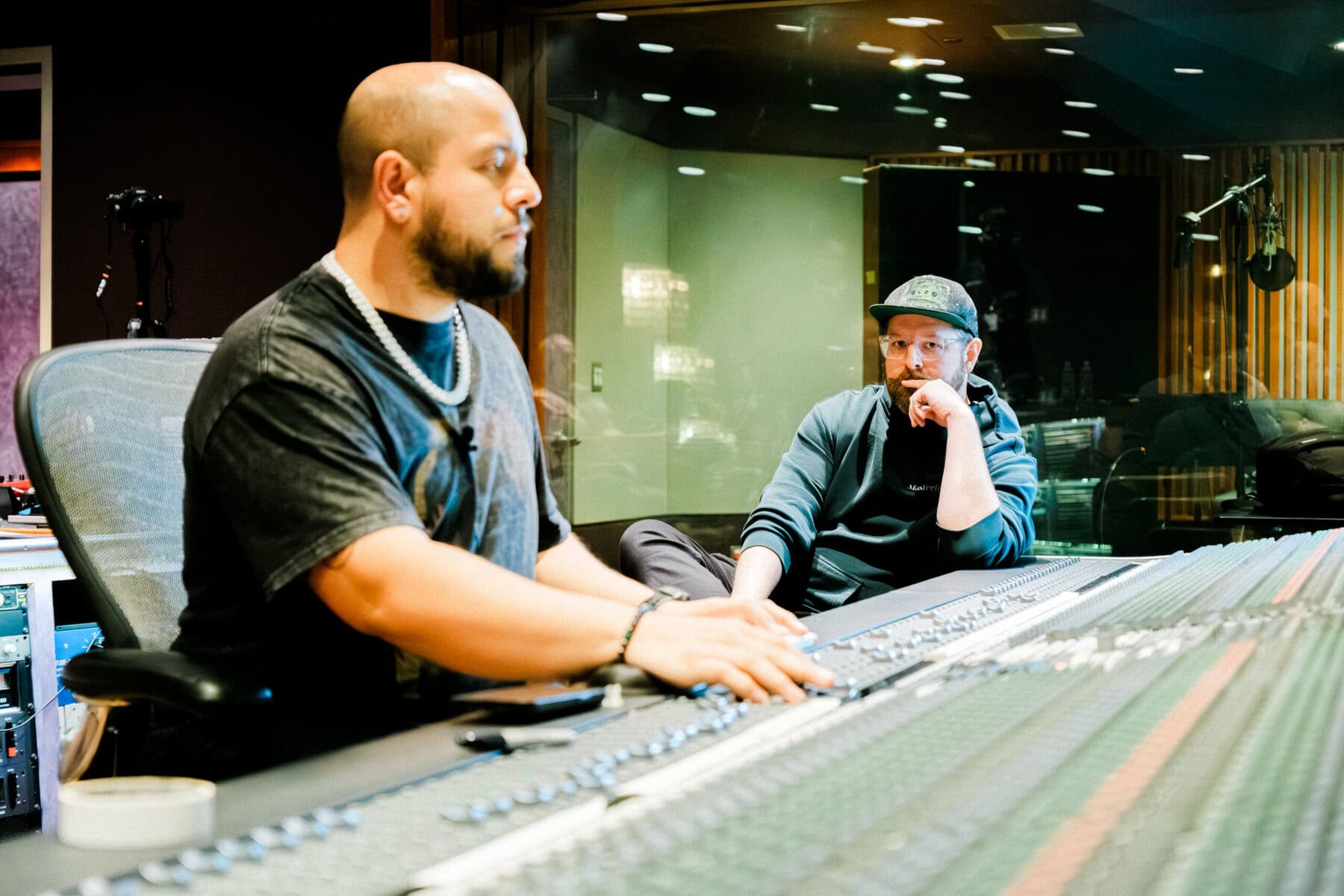Making a living as an audio engineer can seem impossible. There are so many talented professionals in the field, how do you set yourself apart?
Drawing from personal experience, here are seven steps you can take to solidify your work. These steps will help you find your first clients and eventually make a living off your work.
So keep reading if you want to turn your passion for audio into your full-time career!
If you’re like most people in the music business today, you’re probably producing your own music. We put together a brief training that covers a totally new approach to music production. Until now, everyone has been teaching production totally backward. Just click below to watch. Get industry-quality in your music every time (steal this framework)
But if you just want to learn about finding work in audio specifically, keep reading.
Step 1: Start Small
All great businesses have to start somewhere, and that includes yours!
Unless you already have a ton of connections, you’re probably going to have to start at the bottom and work your way up.
That means recording your own music, mixing for your friends, and meeting as many people as you can.
If you can get an internship at a studio, do it!
Work hard while you’re there, even if you’re just doing busywork. The connections you make could be important down the line!
Better yet, try to assist more established engineers. Even if they’re only a little more experienced than you.
You’ll get on-the-job experience that way. And you may just get clients if that engineer finds a gig they can’t take.
This stage can feel very humbling. But don’t be discouraged!
This is exactly how a lot of pros started.
Step 2: Build Your Portfolio
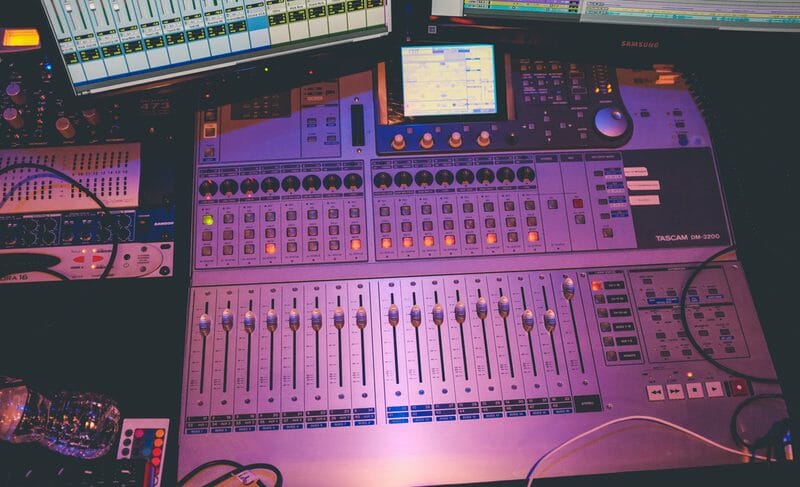
It can be hard to get the ball rolling if you’re just starting and have no clients. So let’s talk about how you can tackle this problem!
The benefit of being in this situation is you can kill two birds with one stone. Let me show you how.
Offering bands and artists a free recording, mix, or a master is a great way to start building your portfolio. And if you do a killer job, the band might hire you for another project.
The way you can do this, for example, online, is by sending an email to a band that goes something like this:
Hello,
My name is [insert your name], and I’m really loving your band [insert band name].
Your latest [EP, album, single, etc.] is killer. I love [insert specifics about a song or their sound].
The reason I’m writing to you is that I’m currently building my portfolio and I’m wondering if you have any unreleased songs you need to be [recorded, mixed, or mastered]? For free, of course.
You can use the song to surprise your fans with a new bonus track, which I’m sure they will love!
Let me know what you think.
[insert your name]
Bonus Tip: Don’t worry if you don’t get a reply.
Just send a simple reminder email asking if they got your last email.
In my experience, there have been so many times a band saw my email but just forgot to reply.
That’s why you should send a reminder email. Otherwise, you might be wasting an opportunity.
Once you’ve finished your free work and your client is happy with the result, don’t stop there. Make sure to keep the relationship going.
Invite the band to a Skype call or, if they live locally, out for a drink or coffee. Talk about their music and whether they are working on anything new.
Build that relationship because that can allow you to turn them into paying clients.
And the better you get to know them, the easier it will be for you to pitch your service to them. For a fee this time, of course.
Step 3: Be Active in Your Local Music Scene
You can definitely find audio work online. But unless you’re really good at social media, you’ll probably find more work from the people around you.
So that’s why you need to be active in your local music scene.
Matt Weiss put it best when he said:
“Wherever you are there is a community of musicians, and it is your job to know all of them and to make sure all of them know you.”
Go to shows and open mic nights. Attend any music industry networking events in town.
These are where you’ll find the musicians hanging out.
And make sure you talk to the musicians while you’re there! Get to know them and show them you care about their work.
This isn’t going to pay off right away. You’re developing connections that may take months or years to pay off.
But if people like you and know you’re an engineer, eventually you’ll get offers.
Step 4: Figure out How Much to Charge

After you’ve got a solid portfolio, you’re ready to ramp up your business. But how much should you start charging the bands and artists you are working with?
A good start can be to ask what other people are charging that are at the same level as you. But don’t cut yourself short by offering super cheap deals.
You’re trying to make a living, after all!
So do your research. Read up on how you can earn more money while providing better service to your clients.
And make sure you understand music royalties.
Just because a musician is strapped for cash doesn’t mean you should drop their project. If they’re super talented and super driven, working with them could really pay off.
See if you can get a small percentage of the rights to either the recording(s) or the song(s). That way, they don’t have to break the bank, and you don’t have to undersell yourself.
Step 5: Adapt to Your Surroundings
You need to adapt to the needs of your clients. The things they want to pay you for may change over time.
When I started out, I was a bit naive.
I only wanted to work in recording studios and nothing else.
And I did! But the studios didn’t always have enough work for me to make a full-time living.
I had to take some side jobs but was still only interested in getting studio gigs.
Here’s why this approach was wrong:
- There are so many other fields I could have used my skills in. For example, live sound, audio for games, films, or TV
- I didn’t realise you have to play the long game to ultimately “win” in this industry
- I didn’t know I might discover something else I really enjoyed doing in the audio industry
- I might have found something that was more reliable
By only working in the studio, I was missing out on huge opportunities. Even if I had made a living, my job would’ve been less secure.
Finally, I was forced to adapt to my surroundings and start looking outside of recording studios for work. It wasn’t until then I was able to make a living from audio and music.

This turned out to be a great thing, and I managed to carve out my own path. Which I really enjoy.
And this is why I want to talk to you about diversifying.
Step 6: Diversify
Diversifying can be a great thing for your career.
You can increase your income by finding multiple streams of revenue. And it can allow you to make a full-time living doing what you love.

And the great thing about working in audio is that you have tons of options!
You can work in everything from recording, live sound, AV, sound for games… The list goes on.
Diversifying can keep you in work way more reliably. For example, working as a live sound engineer has given me many cool jobs I wouldn’t have gotten otherwise.
And you never know who you might meet working in a live venue. You may run into someone who can help your recording career (if that’s your passion).
Other great examples of people who have diversified their careers are all the tutorial websites out there.
For example, this website you are reading right now. My own website, pureMix, Pensado’s Place, Produce Like A Pro, and countless other websites.
The good thing is that you are in charge of what you want to diversify in.
Help other musicians or audio engineers out there, do live sound, work in sound for film or TV, edit podcasts, etc.
Step 7: Be Patient
This is key!
Making a living in audio takes time and dedication. It won’t happen overnight.
I’ve interviewed many successful producers and engineers. And a lot of their success comes down to not quitting and having the patience to keep at it.
For example, producer and engineer Jacquire King (James Bay, Kings of Leon, Norah Jones) said he used to paint houses between making records.
He also spoke about the waiting time between having made a record and it coming out and making an impact.
You sometimes have to wait up to a year for a record to be released. It takes patience and determination to keep going, even though you don’t know what’ll happen.
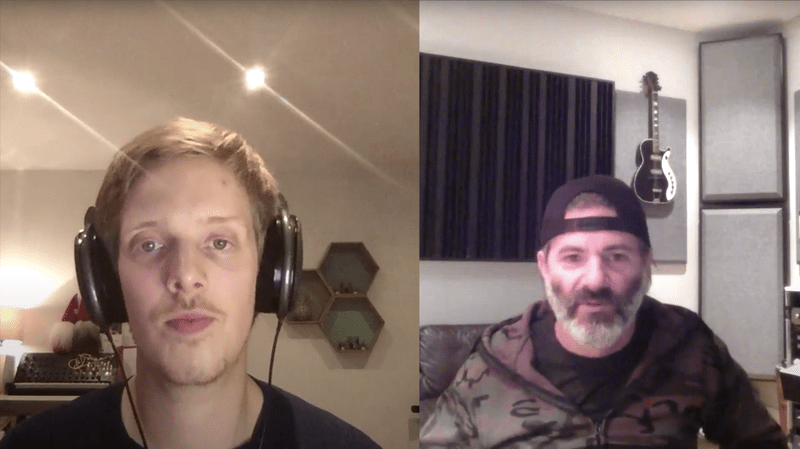
Jacquire King on the Your Audio Solutions podcast
Sometimes it might feel like nothing is happening and your career is at a standstill. But it’s still progressing, just at a much slower pace than you’d prefer.
That’s why it’s so important to be consistent in your work.
You need to have set days where you do certain tasks for your business. Like building your network or reaching out to bands.
Being committed, working hard, and being in it for the long run will get you results.
Conclusion
There is no one way to be able to make a full-time living from audio or music, but I hope the advice in this article is helpful.
Be open to trying new things. Focus on building relationships. Have the determination and patience required.
Then I’m sure you will see great results and achieve great things for yourself.
Let me know in the comments what you are struggling with when it comes to finding clients and work!
If you want to dig deeper into music production and learn what it actually takes to make mixes that sound pro… And you’re an intermediate or advanced producer… Be sure to check out the free masterclass: Enjoy!Next Steps

